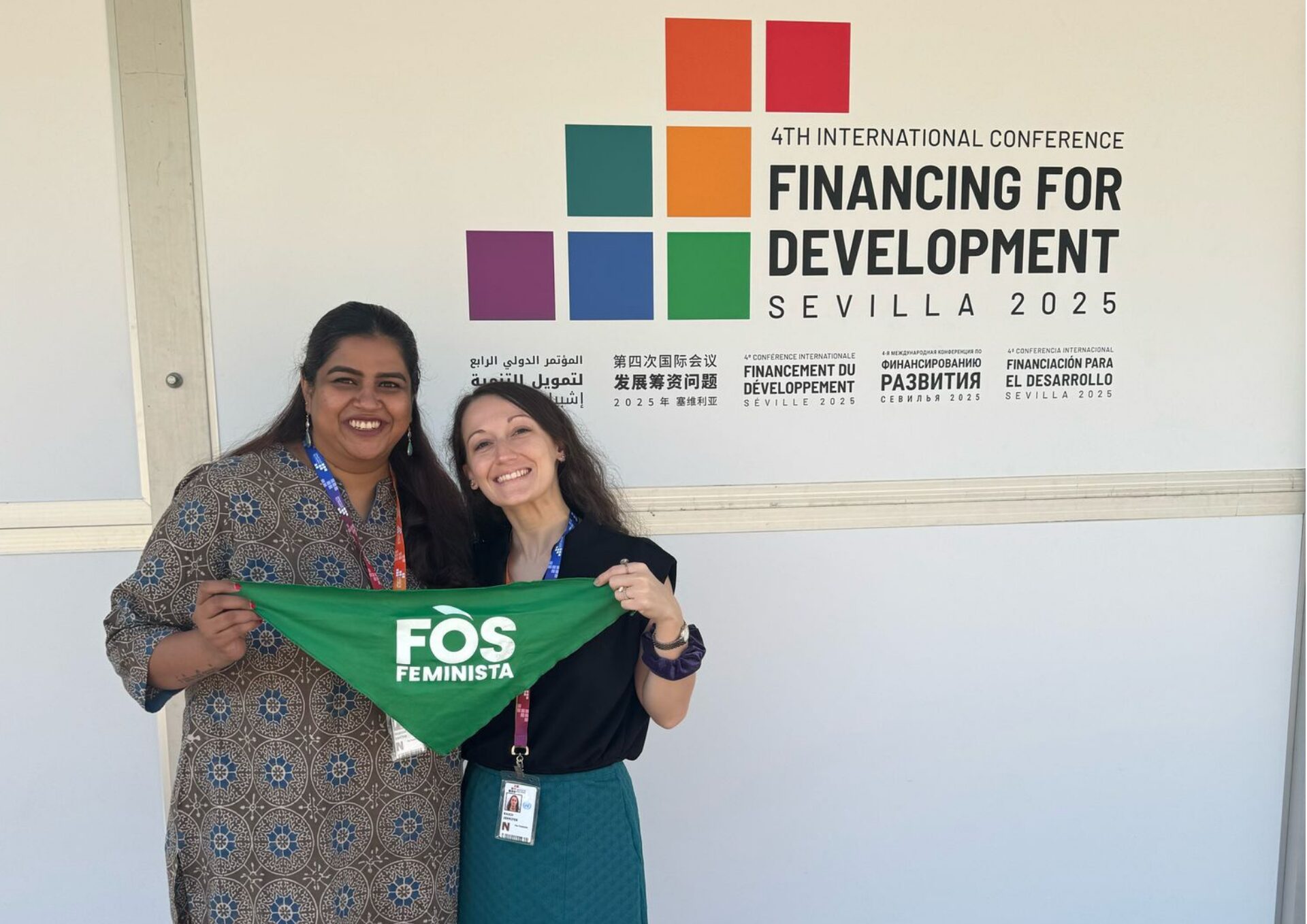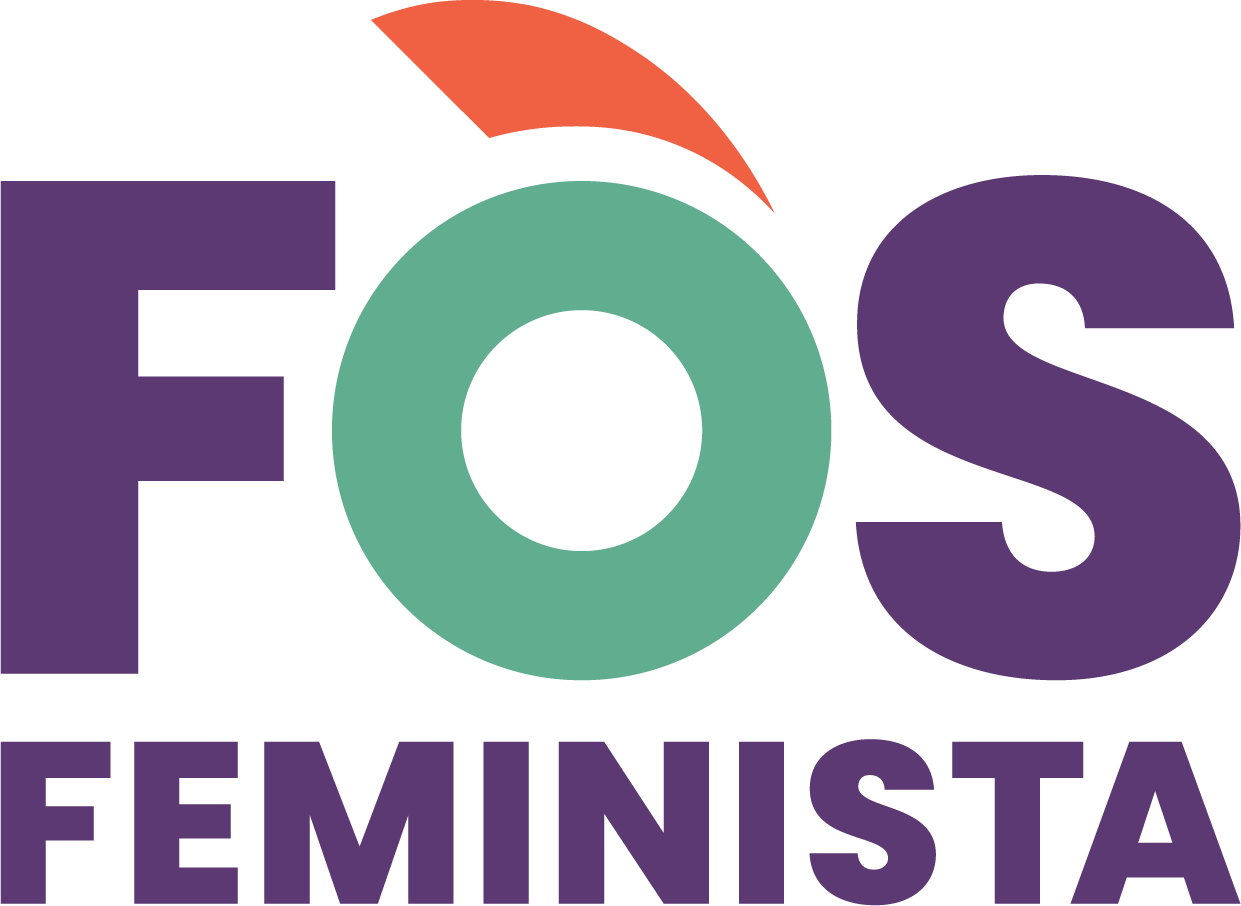
The FfD4 Political Declaration falls short on gender and economic justice. Explore a feminist analysis of its gaps in financing for development.
The 4th International Conference on Financing for Development (FfD4) was held in Sevilla, Spain from Monday 30 June until Thursday 3 July. The conference was designed to bring together governments, financial and trade institutions, businesses, civil society, and UN agencies to unite on stronger international cooperation for reformed international financial structures meant for funding global development efforts. Leading up to the conference, Member States negotiated a Political Declaration to support reform and address financing challenges to push for greater investment in achieving the Sustainable Development Goals.
The Political Declaration – known as the Comprimiso de Sevilla or the Seville Compromise – was adopted by consensus on the first day of the conference. The text represented the outcome of months of tense negotiations between Member States beginning early 2025, with the most debated issues being debt, tax, trade, climate change, and some references to gender equality. Throughout the process, Fòs Feminista worked in partnership with the Feminist Workstream on FfD to advocate for an intersectional approach to financing, which applied a justice lens to issues of financing, and highlighted the connection between finance, development, human rights and gender equality, and sexual and reproductive health and rights. The adoption of the text, despite the many debates, ultimately marks an important step in the role of multilateralism, reinforcing Member States’ commitments to achieving the Sustainable Development Goals, particularly at a time when the SDGs are under attack within the UN system.
Overall, from a feminist point of view, the Political Declaration is a mixed bag in terms of its commitment to social justice across the board.
First, on the issue of gender inclusion in public financing, we see the Political Declaration reaffirms Member State commitments to gender equality and the empowerment of all women and girls, found in Paragraph 11 of the text, and additionally commits to mainstreaming a gender perspective and promoting gender-responsive solutions across the financing for development agenda. Paragraph 27(g) further commits to promoting gender-responsive budgeting and advancing the discussion on gender-responsive taxation by enhancing monitoring and evaluating budgets with a gender perspective to identify gender biases within tax systems.
Second, the text commits to increasing investment in the care economy, and to recognize, value, and equitably redistribute the disproportionate share of unpaid care and domestic work done by women. However, while this mention indicates a positive step in addressing gendered care burdens, the reference itself does not meet the most progressive International Labor Organization standards. Specifically, Paragraph 11 calls on Member States to “recognize, value, and equitably redistribute”, whereas the ILO calls to “recognize, reduce, redistribute, reward, and represent” unpaid care and domestic work; this shows a missed opportunity for Member States to advance normative frameworks and commitments to the care economy within the text.
On issues related to health, in paragraph 19, Member States reaffirm their commitments to increasing investments in universal health coverage, and inclusive, equitable, affordable, quality and resilient health systems. We recognize this to be an improvement from the previously political declaration – the 2015 Addis Ababa Action Agenda – which does not have a standalone paragraph on universal health coverage. However, while this is a positive step, there is absolutely no mention of sexual and reproductive health and rights within the text. This is a giant gap in the Political Declaration, considering the strong interlinkages between SRHR and economic justice.
Overall, we find the Political Declaration to be significantly lacking on robust and ambitious language on economic justice, gender justice, and reproductive justice. It is clear that a gender and human rights approach to financing was not mainstreamed throughout the text, and many feminist values are missing in the document.
This omission is critical. The links between SRHR, economic justice, and global development are clear. At the individual level, financial autonomy translates to greater bodily autonomy, including access to abortion, contraception, and HIV services, and access to these essential sexual and reproductive health services enables greater participation in the labour force for women and gender-diverse people. At the community level, the gendered impacts of poverty leaves marginalized communities unable to access SRHR services and commodities, as vaccines, and pre-natal care, hormonal medication, and other commodities often are too expensive to afford out-of-pocket. At the national level, persistent debt crises disproportionately impact women and marginalized communities by shrinking their access to essential services at the systemic and individual level, and reduced national budgets and austerity measures often lead to less public spending on health, education, and social care. These links are essential to recognize against the background of international economic actors such as IMF compelling countries to repay debt burdens over spending on essential services in health and education, with devastating impacts on social justice outcomes.
These cuts to public service lead women and girls to take on additional care burdens, which can deepen the health, economic, and educational inequalities women and girls face. All of these impact women’s ability to participate in the workforce and to contribute and engage meaningfully in public life.
The linkage between gender equality, human rights, and sustainable development remains critical, particularly in the context of the SDGs over the next 5 years. In multilateral spaces, we are witnessing a pushback against the implementation and language on the SDGs. For example, during negotiations for the 69th session of the Commission on the Status of Women, the United States repeatedly rejected language related to the advancement or recognition of the 2030 agenda. During the 58th session of the Commission on Population and Development, the United States indicated their desire to call the outcome document to a vote over the inclusion of long-standing, consensual language regarding the SDGs, despite overwhelming support from Member States, cross-regionally, on its importance and value in multilateralism. In fact, at the initial presentation of the Comprimiso de Sevilla in New York, the United States withdrew their participation from the process over the language included in the text, including the references to the SDGs. As the renewal of the SDGs approaches in five years, this growing resistance and general opposition to achieving sustainable development remains a major barrier in achieving justice and equity for all people around the world.
The advancement of gender equality and human rights, specifically SRHR, has been publicly deprioritized often based on the justification that there is a scarcity of resources and funding. We call attention to the fact that this is not the case; the problem isn’t having the resources to address these rights but having the political will to do so. Concurrent to the FfD4 Conference, NATO allies met and pledged to increase defense spending to 5% of gross domestic product – 3.5% on military expenditures and 1.5% on loosely defined defense. Yet, these same countries, during negotiations for the Political Declaration, refused to include a reference to debt cancellation for the Global South. This increased commitment to militarization without relieving the persistent debt crises remains a major gap in the FfD4 Political Declaration. Similarly, we saw that during the negotiations, gender equality was used as a bargaining chip to sidestep debate over issues such as debt relief, global taxation, and climate change.
It goes without saying that we need gender equality, sexual and reproductive health and rights, and bodily autonomy to be reflected in conversations on development and development financing urgently. We need large-scale, strategic reforms to international financial architecture and debt regimes that break colonial patterns of financial extraction and neoimperial-capitalist models of global resource allocation and use. Without major reforms and restructuring for the international financial architecture, the implementation of the FfD4 Political Declaration will continue to advance the current financial norms, and economic, gender, and reproductive justice will remain unattainable for women, girls, and gender diverse individuals around the world.
Co-written by Jen Rauch, Global Advocacy Officer and Swetha Sridhar, Senior Global Policy Research Officer






